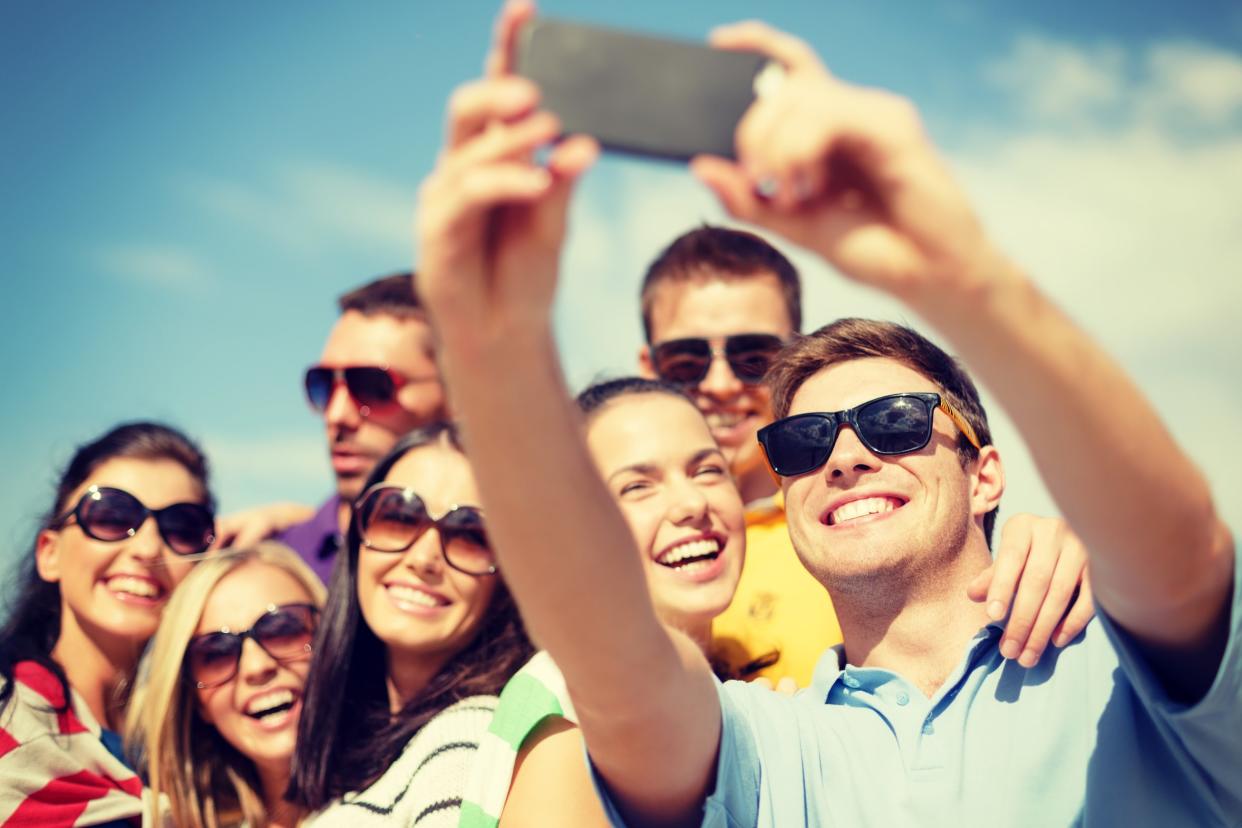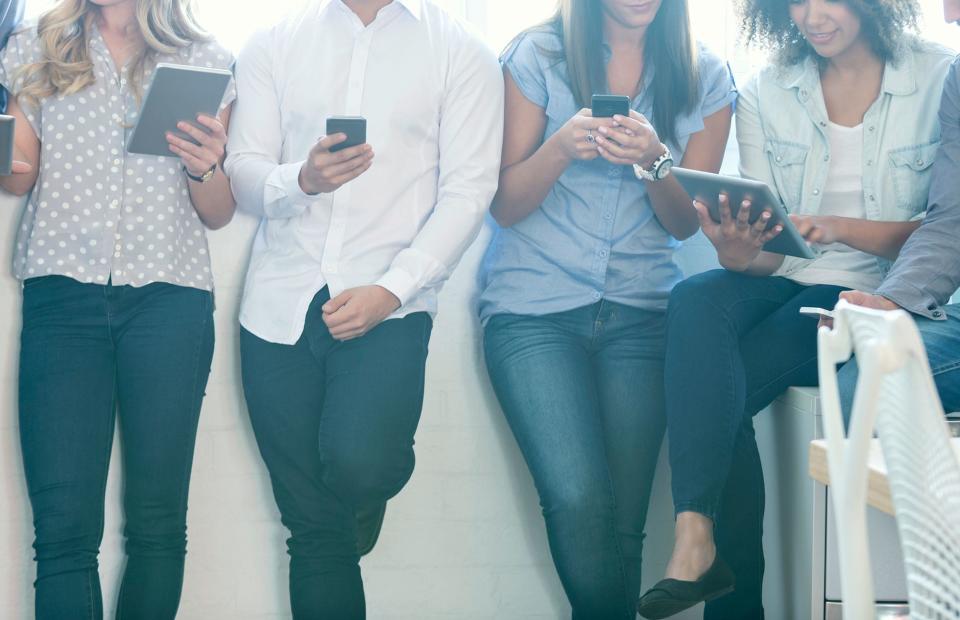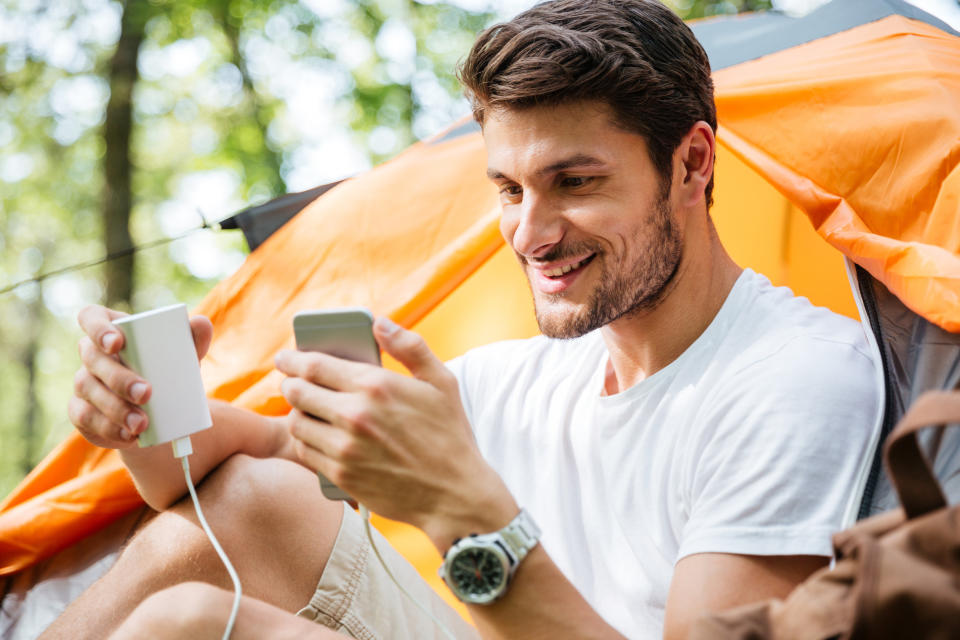The science behind why you shouldn't take your phone on holiday

The mobile phone is today’s most ubiquitous accessory and our use of them borders on obsessive.
The palm-sized portals come with us everywhere, including on holiday, where they are used, among other things, to take our photographs, book our taxis, message our friends and update our social media feeds.
While their uses multiply, the more of a distraction they become. Now it is more likely than ever that using your phone could mean you are missing out on everything that you’ve gone on holiday to enjoy. And wouldn’t that be a waste of money?
Here are the most compelling reasons why you should leave your smartphone at home and enjoy your holiday.
Because holidays are good, technology is bad
The overwhelming consensus among psychologists is that tourists enjoy more positive emotions while on holiday than during daily life at home (Kemp et al., 2008; Mitas et al., 2012a). According to Mitas et al., tourists’ positive emotions follow a ‘peak’ model, where emotions improve leading up to a holiday, are elevated during and decline after.
Technology use, however, has been found to be responsible for decreasing the amount of time we spend outdoors and in nature. This, in turn, has caused everything from attention problems, obesity, anxiety and depression, according to Richard Louv’s work on nature deficit disorder (2005, 2012), as discussed in The Routledge Handbook of Health Tourism.
Unplugging therefore can help avoid these problems and also open us up to our surroundings.
Does technology improve or spoil the holiday experience?
To soak up the atmosphere
The chances are, you've gone to rural Mongolia to be alone on the plains with just the wind, the locals and their eagles, so whipping out the latest technology is going to ruin the mood for you and everyone else who is there trying to appreciate a simpler way of life.
Small cameraphones are great for being unobtrusive but taking too many photos of people you meet along the way is also more likely to make them change their behaviour towards tourists in the future, and make the whole experience less authentic for the next bunch who travel out here.
To relax properly
A study by Shochat (2012) looked at the impact of lifestyle and technology on sleep quality, quantity and timing, and found that the excessive and constant use of technology, especially close to bedtime or in the bedroom, detrimentally affected sleep.

To avoid unimportant trivia
Weil (2013) states that ‘Not only do we suffer from nature deficit, but we are also experiencing information surfeit’, as recorded in The Routledge Handbook of Health Tourism.
Ignoring social media updates and clearing our minds of what is mundane will give us the focus to experience more and make emotional connections to what is going on around us.
Weil concluded that our modern, post-industrial lifestyles are incompatible with our true nature, which is to thrive in natural environments - hello countryside - and in bonded social groups.

To listen to and bond with others
Speaking of social groups, the bulk of tourism emotion research in The Routledge Handbook of Health Tourism suggests that an important mechanism of positive emotions in tourism experiences is interaction between people.
Conversations that aren't being interrupted by incessant beeps will be longer and deeper. And spending more time talking to whoever you are with will improve your relationships - providing long-lasting happiness - and give your holiday companions a boost too.
To exercise brain power
Yes smartphones come with a calculator function but you shouldn’t need to use it. Try some mental arithmetic. No matter how much table wine you’ve consumed, totting up how to split the bill or how much to tip the waiter will be just the mental workout your brain needs to keep it ticking over nicely.
Dr Swart's brain power tips for travel and jet lag
To really get to know somewhere
Google Maps is in danger of doing what satnav did for motorists - turning them into zombies who blindly follow instructions while taking in nothing from their surroundings.
Instead, try developing your own in-built sense of direction. Asking for directions and learning what lies where, gives you a greater understanding of a place as opposed to following a moving marker. It also gets you talking to locals and practising a language. Interacting with locals makes for some of the best memories.
To help us not miss home
If you think 'FOMO' - the fear of missing out - is ridiculous, then the fear of missing out on what is happening back home while you are on holiday is even more so.

Studies on the positive effects of tourism in The Routledge Handbook of Health Tourism noted that there were benefits in interacting with nature (Bimonte and Faralla, 2012, 2014), in warm outside temperatures (Nawijn, 2010; Strauss-Blasche et al., 2005), in pleasurable physical exercise (Strauss-Blasche et al., 2005; de Bloom et al., 2011) and a sense of freedom in daily activities (Strauss-Blasche et al., 2005).
All of these involve focusing on the present and what is happening around you.
To avoid wasting time
No one needs to see your photos as they happen. Social media is time consuming and, on holiday, those minutes and hours are never more precious.
If you do feel the need to share, leave posting any photos until you get home. This way it will not detract from the experiences you're having and will actually be beneficial, as you can relive the happy memories you made all over again.
Your friends are bound to appreciate only having to flick through the edited highlights of your trip also.
To leave with the best memories
Visual memories are stored by the visual cortex of the brain and like others, every time they are activated they are strengthened. Viewing photos after an event will make them more likely to be recalled.
What you want to aim for, however, is a mixed bag of memories, where those triggered by the scenes in your photos are complemented by those that are not only facts of an event but are more vague and come from experiences. These memories, when recalled, are more likely to have emotions attached to them.
This way your reminiscences will be richer and not just limited to the things you were able to point your lens at.


